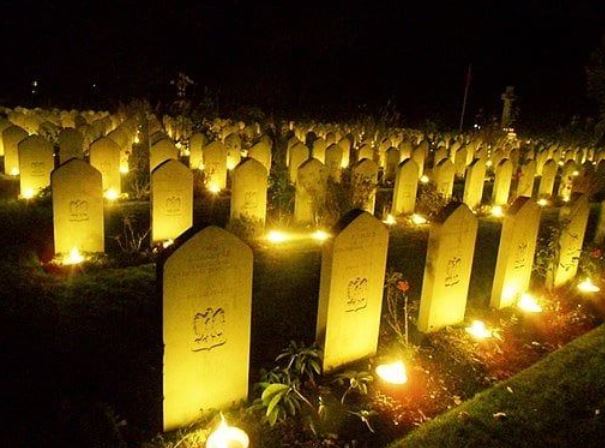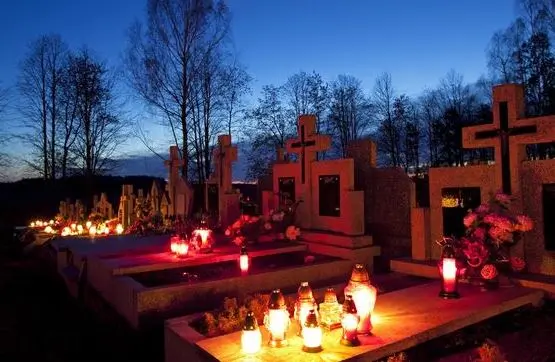All Souls’ Day is a significant observance in many Christian traditions, dedicated to remembering and honoring the souls of the deceased. Celebrated annually on November 2nd, this day holds deep religious and cultural meaning, offering a moment for reflection, prayer, and remembrance. This article explores the origins, customs, and significance of All Souls’ Day, highlighting its importance in various religious contexts and cultures.
What is All Souls’ Day?
All Souls’ Day is a Christian observance dedicated to praying for and remembering the souls of the departed, particularly those who are in purgatory. It is part of the broader tradition of honoring the dead and seeking spiritual intercession for them.
- Definition and Purpose: The day is set aside to pray for the souls in purgatory, with the belief that such prayers can help them attain heaven. It serves as an opportunity for the living to offer spiritual support and express their love and remembrance for those who have passed away.
- Historical Background: The origins of All Souls’ Day can be traced back to the early Christian church. The observance has evolved over time, incorporating various traditions and customs that reflect its significance in different cultures and religious practices.
Historical Origins and Evolution
The observance of All Souls’ Day has a rich history that reflects the development of Christian practices related to death and the afterlife.
- Early Christian Traditions: The practice of praying for the dead dates back to the early Christian church. Early Christians believed in the importance of interceding for the souls of the deceased, and this belief laid the groundwork for the observance of All Souls’ Day.
- Development of the Feast Day: All Souls’ Day was officially established in the 10th century by the Benedictine monks in Cluny, France. It was later adopted by the wider Catholic Church and became a prominent feast day in the liturgical calendar.
- Influence of All Saints’ Day: All Souls’ Day follows All Saints’ Day (November 1st), which honors all saints, known and unknown. While All Saints’ Day focuses on celebrating the lives of saints, All Souls’ Day is dedicated to praying for the souls of all deceased individuals, particularly those who may still be in purgatory.

Customs and Traditions
All Souls’ Day is observed with various customs and traditions that reflect its religious and cultural significance.
- Religious Services: Many Christians attend Mass or special church services on All Souls’ Day. These services often include prayers and hymns dedicated to the deceased, as well as a commemoration of the faithful departed.
- Visiting Cemeteries: A common tradition is to visit the graves of deceased loved ones. Families may clean and decorate the graves, light candles, and offer flowers as a sign of respect and remembrance.
- Offering Prayers: The day is marked by special prayers and indulgences offered for the souls in purgatory. These prayers are meant to assist the deceased in their journey toward eternal rest and salvation.
- Customs Around the World: All Souls’ Day is celebrated differently in various cultures. For example:
- Mexico: The Day of the Dead (Día de los Muertos) coincides with All Souls’ Day and is celebrated with colorful altars, marigolds, and offerings to honor the deceased.
- Philippines: Known as Undas or Araw ng mga Patay, Filipinos visit cemeteries to pay respects, light candles, and hold family gatherings to remember the departed.
Theological Significance
The theological significance of All Souls’ Day is deeply rooted in Christian beliefs about the afterlife and the power of prayer.
- Purgatory: The concept of purgatory, where souls undergo purification before entering heaven, is central to the observance. Prayers offered on All Souls’ Day are believed to help ease the souls’ journey and accelerate their entrance into heaven.
- Intercession: The practice of interceding for the dead reflects the Christian belief in the communion of saints and the importance of communal prayer. It emphasizes the connection between the living and the deceased, highlighting the role of prayer in supporting the souls of loved ones.All Souls’ Day
All Souls’ Day is a meaningful observance that provides an opportunity for reflection, prayer, and remembrance. Celebrated on November 2nd, it serves as a moment for Christians to honor the souls of the deceased and seek spiritual support for those who may be in purgatory. Through religious services, cemetery visits, and various customs, the day underscores the importance of maintaining a connection with the departed and offering them our prayers and love.
Whether through solemn ceremonies or vibrant cultural celebrations, All Souls’ Day continues to be a time of deep spiritual significance, offering solace and unity as we remember and honor those who have passed away.




